The Economic Community of West African States (ECOWAS), has brought the community levy back into the spotlight as it leads the agenda at the ongoing 35th meeting of the Commission’s Committee on Administration and Finance in Abuja.
Prime Business Africa reports that the five-day meeting, which started on June 27, is set to address the challenges in implementing the community levy protocol and review the Commission’s organogram.
Join our WhatsApp ChannelCommunity Levy Challenges
In 2014, ECOWAS adopted a 0.5 percent levy on all imports into the region, replacing contributions from member states. However, the implementation has faced significant hurdles.
The Vice President of the ECOWAS Commission, Damtien Tchintchibidja, emphasised the urgency of adhering to the protocol, saying, “I would like to make an urgent appeal to all member states so that they can comply as quickly as possible with the provisions of the protocol relating to community levy.”
The levy, according to Prime Business Africa is essential for the functioning of ECOWAS institutions and project implementation. Tchintchibidja added, “Remittance of the community levy will allow us to ensure the good functioning of institutions and the implementation of projects within the community.”
Impact of Member State Withdrawals
The meeting occurs against a backdrop of potential upheaval, with Mali, Burkina Faso, and Niger Republic indicating their intention to withdraw from the 15-member regional bloc.
Tchintchibidja expressed concern about the impact of these withdrawals, stating, “The announced withdrawal of our three member states appeals to us all in more than one way. We must put everything in place to safeguard our unity, our secular ties, our spirit of fraternity and solidarity.”
She underscored the broader implications for regional unity and the need for inclusive development. “This is a retreat that would also be a win-win for our institutions in terms of community levy. It remains the main source of funds for ECOWAS programmes and activities,” she explained.
Review of the Commission’s Organogram
Another key focus of the committee’s discussions is the review of the Commission’s organogram, which has been in place since 2018.
This review will impact all ECOWAS institutions, including the community court, community parliament, and the commission itself. The committee is expected to consider reducing the number of committees from 15 to 7, a move that reflects ongoing reforms within the Commission.
Ambassador Emmanuel Awe, Chairman of the Committee on Administration and Finance (CAF), highlighted the importance of these reforms.
“We owe our community the obligation to handle our mandate objectively and dispassionately. I urge you to further sustain the efforts in implementing the policies, projects, and programmes that enhance and promote prudent management of the community resources, as well as advance our regional integration objectives in line with ECOWAS vision 2050,” Awe said.
Path Forward
Over the next five days, the committee members, drawn from 12 member states, will review a comprehensive report of 100 to 150 pages.
Their goal is to adopt the proposals and pass them to the Council of ministers for final approval. Tchintchibidja and Awe’s calls to action reflect a commitment to overcoming current challenges and ensuring the stability and prosperity of the ECOWAS region.
The Economic Community of West African States (ECOWAS) has brought the community levy back into the spotlight as it leads the agenda at the ongoing 35th meeting of the Commission’s Committee on Administration and Finance in Abuja.
The five-day meeting, which started on June 27, is set to address the challenges in implementing the community levy protocol and review the Commission’s organogram.
Community Levy Challenges
In 2014, ECOWAS adopted a 0.5 percent levy on all imports into the region, replacing contributions from member states. However, the implementation has faced significant hurdles.
The Vice President of the ECOWAS Commission, Damtien Tchintchibidja, emphasised the urgency of adhering to the protocol, saying, “I would like to make an urgent appeal to all member states so that they can comply as quickly as possible with the provisions of the protocol relating to community levy.”
The levy is essential for the functioning of ECOWAS institutions and project implementation. Tchintchibidja added, “Remittance of the community levy will allow us to ensure the good functioning of institutions and the implementation of projects within the community.”
Impact of Member State Withdrawals
The meeting occurs against a backdrop of potential upheaval, with Mali, Burkina Faso, and Niger Republic indicating their intention to withdraw from the 15-member regional bloc.
Tchintchibidja expressed concern about the impact of these withdrawals, stating, “The announced withdrawal of our three member states appeals to us all in more than one way. We must put everything in place to safeguard our unity, our secular ties, our spirit of fraternity and solidarity.”
She underscored the broader implications for regional unity and the need for inclusive development. “This is a retreat that would also be a win-win for our institutions in terms of community levy. It remains the main source of funds for ECOWAS programmes and activities,” she explained.
Review of the Commission’s Organogram
Another key focus of the committee’s discussions is the review of the Commission’s organogram, which has been in place since 2018.
This review will impact all ECOWAS institutions, including the community court, community parliament, and the commission itself. The committee is expected to consider reducing the number of committees from 15 to 7, a move that reflects ongoing reforms within the Commission.
Ambassador Emmanuel Awe, Chairman of the Committee on Administration and Finance (CAF), highlighted the importance of these reforms.
“We owe our community the obligation to handle our mandate objectively and dispassionately. I urge you to further sustain the efforts in implementing the policies, projects, and programmes that enhance and promote prudent management of the community resources, as well as advance our regional integration objectives in line with ECOWAS vision 2050,” Awe said.
Path Forward
Over the next five days, the committee members, drawn from 12 member states, will review a comprehensive report of 100 to 150 pages.
Their goal is to adopt the proposals and pass them to the Council of Ministers for final approval. Tchintchibidja and Awe’s calls to action reflect a commitment to overcoming current challenges and ensuring the stability and prosperity of the ECOWAS region.
Emmanuel Ochayi is a journalist. He is a graduate of the University of Lagos, School of first choice and the nations pride. Emmanuel is keen on exploring writing angles in different areas, including Business, climate change, politics, Education, and others.





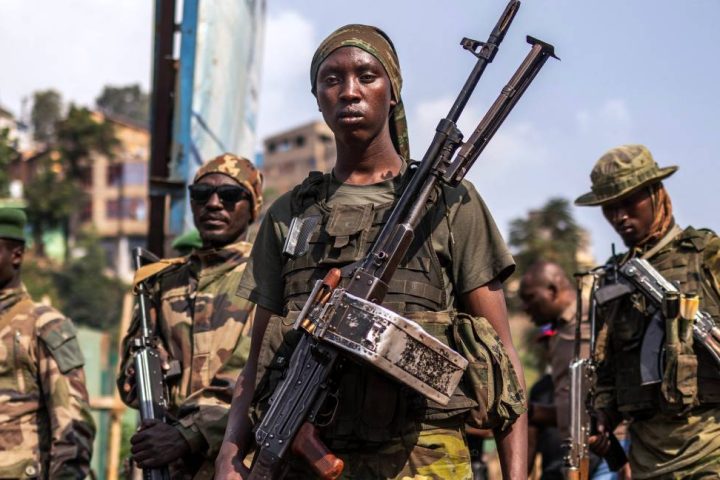
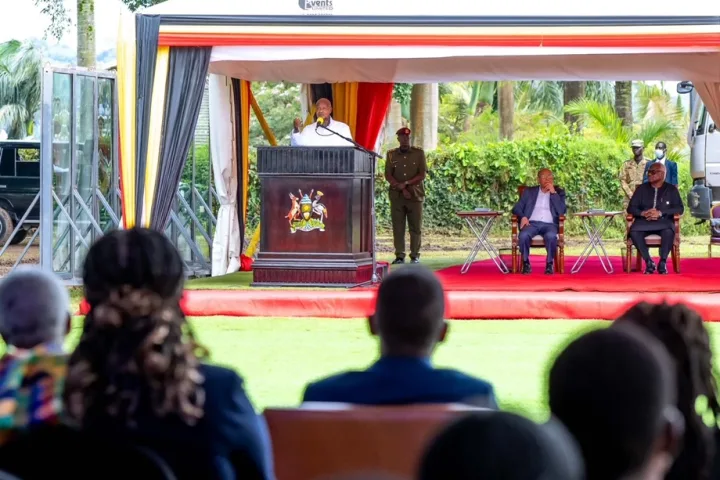
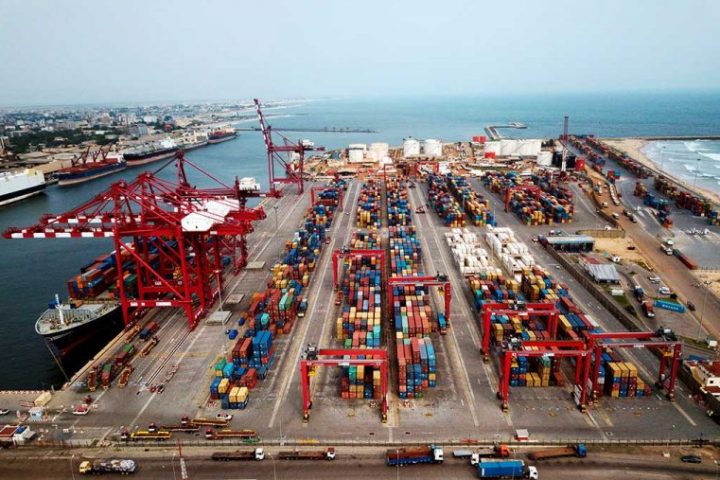






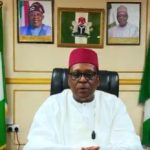



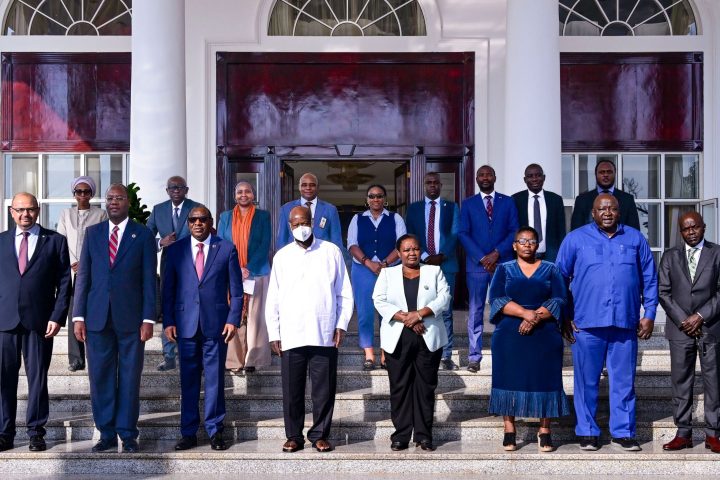
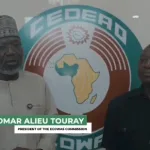
Follow Us